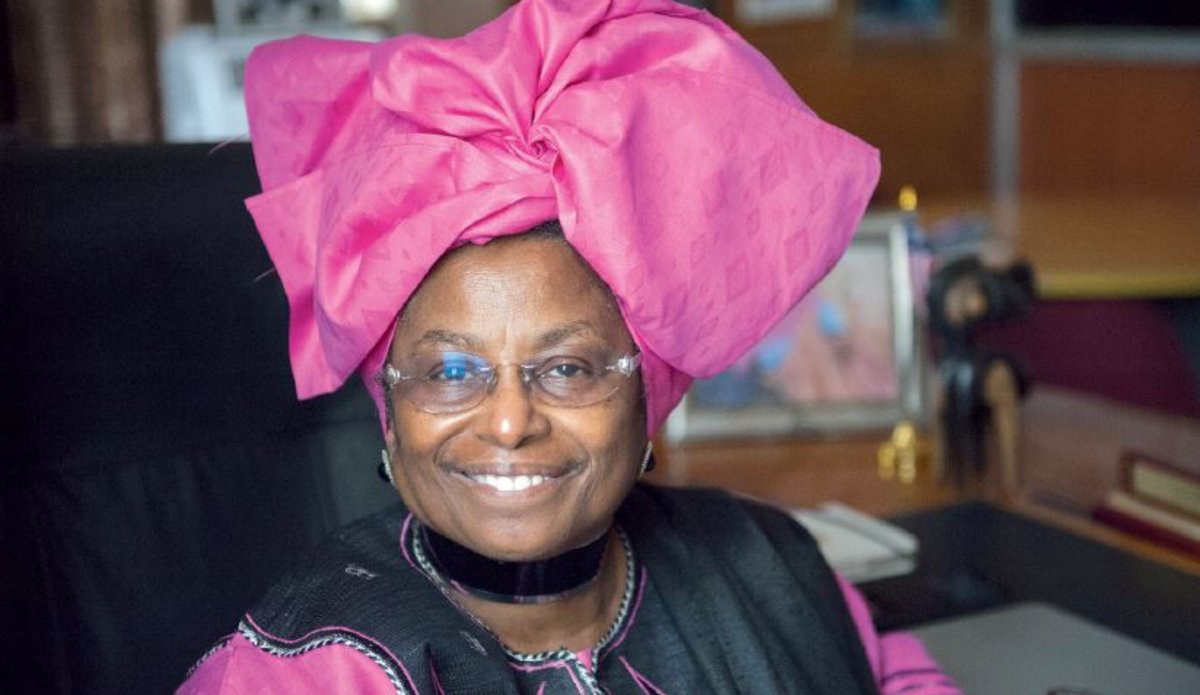The story of UNMIL [Book]: Women’s Situation Room prepares ground for calm elections

As tensions simmered in the period between the October 2017 presidential election and the December 26 run-off, networks of influential women gathered in “situation rooms” around the country, working with election officials and police to help keep the situation calm.
The Women’s Situation Room is the creation of Councillor Yvette Chesson-Wureh, a prominent jurist in both Liberia and the US, who leads the Angie Brooks International Centre for women’s empowerment and leadership development.
Angie Brooks was Liberia’s first Permanent Representative to the UN, and became Africa’s first President of the UN General Assembly. President Ellen Johnson Sirleaf, noting that the NGO championed women’s leadership, allocated offices in the Foreign Ministry for the Centre.
The Women’s Situation Room is a series of activities that are deployed for elections, first organized before the 2011 presidential vote, to forestall anticipated violence. The Liberian model has now been replicated for elections in seven other countries, and in Liberia, women are seeking ways to make it a permanent facility.
The Women’s Situation Room functions as a nerve centre, gathering and providing information, producing analyses and calling in intervention by the elections officials or police when incipient tensions or abuses such as ballot box stuffing are detected. The situation room is “manned” by “eminent women leaders” selected for the reach of their influence and credibility in each community. Police officers also take part to ensure a direct link with law enforcement. Call operators are trained on how to respond to questions by legal experts.
In the October 2017 elections, the Room provided 300 elections observers and 73 peace monitors, with personnel in each electoral district. They logged and/or intervened in some 800 incidents.
The Government of Norway, UNDP and other partners funded the October Situation Room, and UNMIL funded its deployment for the second round of elections in December.
On the run-off day, the Women’s Situation Room and the Liberia Elections Early Warning & Response Group, another civil society group, shared concerns about the low turnout and reported on the alleged use of duplicated or forged registration cards. Together they conducted a talk show on UNMIL Radio to share lessons learned.
Founder Chesson-Wureh credits the Women’s Situation Room with averting chaos and violence during the 2017 elections, particularly between the two rounds of voting.
“For the first time, after the Women’s Situation Room, the politicians went to court. For the first time, we saw the legal process go from the magistrate’s office to the Supreme Court. In the past, the loser would go to the disadvantaged youth, give them US$5, and start a demonstration. The Women’s Situation Room ensures there is no violence before, during and after the elections.”
Spin-off activities of the Angie Brooks Centre included a mini-call centre during voter registration, a 15,000-women march for peaceful elections, and training for yanna boys (street traders).
Another of Ms. Chesson-Wureh’s proudest ventures, also deployed during the elections period, is the Talking Bus, donated by UNMIL. The
Bus took lawyers and others with knowledge of the political process to nine hotspots around the country to engage in conversation with local communities. Ms. Chesson-Wureh recalls lines of hundreds of people waiting in the rain to board the bus and ask questions. The Bus was a critical tool by the Women’s Situation Room particularly during the lull between voting rounds.
“People were confused,” she recalled. “Some people didn’t even know there was a Constitution. It also gives people a sense of being part of the country and part of the process.”
She has more plans for the bus, as her NGO continues to bring the people of Liberia on board.
 UN
UN United Nations Peacekeeping
United Nations Peacekeeping

![The story of UNMIL [Book]: Support to elections The story of UNMIL [Book]: Support to elections](https://unmil.unmissions.org/sites/default/files/styles/gallery_image_thumb/public/field/image/unmil_helicopter.jpg?itok=EsUC5tT_)
![The story of UNMIL [Book]: Special Court takes on SGBV cases The story of UNMIL [Book]: Special Court takes on SGBV cases](https://unmil.unmissions.org/sites/default/files/styles/gallery_image_thumb/public/field/image/a_young_victim.jpg?itok=A893Cops)


